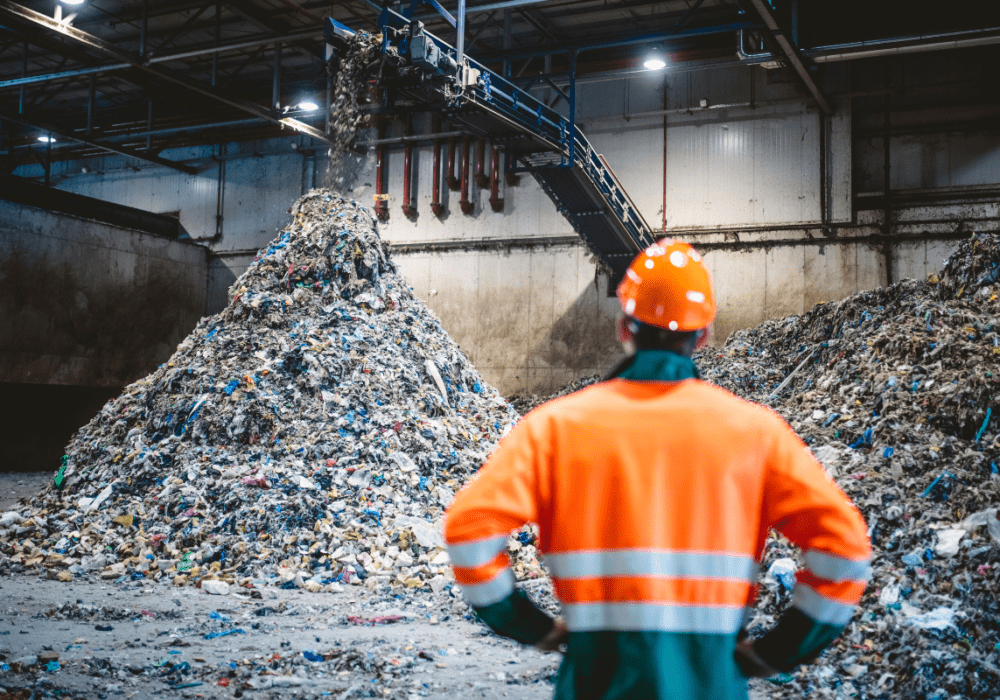
Are the benefits of AI for waste management at risk of getting lost?
It is sometimes difficult to pinpoint an exact date when an evolutionary step happened. However, when it comes to the recent surge of global interest in artificial intelligence (AI), it is easy to pinpoint a specific date: 30th November 2022.
This was the day OpenAI launched ChatGPT, a conversational chatbot built on top of the company’s GPT-3 family of large language models. Such technology is capable of delivering human-like conversational responses to complex questions across the depth and breadth of human knowledge.
This precipitated something of a media blitz, and since then practically every day has brought out a new strand of the AI story. ‘The Pros and The Cons’ is one of the key threads. Framed within the narrative of benefit versus risk, businesses are trying to seize the commercial initiative. Meanwhile, governments and regulators worldwide are playing catch up, trying to assume control, in part to allay fears about jobs.
AI escaping from human control and taking over may seem like sci-fi; however, many, including two of the ‘godfathers’ of AI have sounded warnings. At the moment these appear to be largely philosophical, rather than tangible.
In the near term, it is more likely that wilful AI misuse is going to pose the most probable threat, in the shape of cybercriminals motivated by financial gain, or politically inspired hacking disrupting democratic political processes.
More pragmatically, for the purposes of advancing waste management, it is important to recognise the distinction between high and low-level AI. Failing to do so may mean the easy wins of lower level forms of the technology become lost amidst the hubbub and the hysteria surrounding the potential risks of higher level AI.
Improving MRF efficiency and capacity through AI automation
Machine learning (ML) is one of the foundations of high-level AI. It has been driving innovation for more than a decade. Built on the principle of analysing large volumes of data to identify patterns, (Big Data analytics), ML is the driving force behind mechanical automation, through enabling software to accurately control physical processes.
Such automation already plays a huge role in recycling at materials recycling facilities (MRFs) across the EU and beyond. However, as both the software side of the technology and mechanical actuation increase in accuracy, this is only going to drive efficiency and capacity improvement.
With such advances, MRF owners and operators as well as other stakeholders including municipal waste management contractors and local authorities, are able to better deliver against their recycling and related waste management targets.
With the increasing speed and power of computing technologies driving innovation further, councils may even be able to be more ambitious in setting performance standards.
The AI elephant in the room: Fears about jobs
Of course, MRF automation is going to have an impact on jobs. The jobs of workers such as line operators performing picking line sorting by hand are highly likely to be superseded by MRF automation technologies. It is, however, for many observers, a job that a human worker should be freed from doing.
Increased levels of automation suggest that human workers will still be required, because greater mechanisation means more maintenance and supervision of the machinery, and there will always be a need for cleaning down sorting lines, duties that many line operators currently undertake.
Where AI performs jobs for which humans are not suited
Freeing humans from distasteful, mundane, difficult or downright dangerous physical jobs is nothing new, and AI is driving innovation. Some good examples include:
- Line-of-Business (LoB) automation – for many years an important strand of the software industry has focused on addressing the inefficiency and error that comes from using a paper-based approach to general business processes, such as accounting and project management. However, there is also a strong interest in very many more specific industry lines-of-business, such as waste management collection, in which Whitespace is a UK market leader.
- Nuclear industry – robotic devices have long been used in the nuclear energy industry, avoiding the need for human exposure to high levels of radioactivity. The UK is a world leader with the National Centre for Nuclear Robotics (NCNR) developing technologies to address the problem of decommissioning 4.9 million tonnes of nuclear waste generated by the UK nuclear industry since the early 1950s.
- Deep sea activities – tethered, remotely operated vehicles (ROVs) have been used in deep ocean exploration for decades, most famously in locating the tragic liner Titanic in 1985. The oil industry, geological surveying, air and maritime accident investigation and salvage, as well as the military all have interests in the AI powered autonomous underwater vehicle (AUV), a robot that travels underwater without requiring continuous input from an operator.
Tech to tackle tough waste management problems from Whitespace
From doorstep household waste recycling centre (HWRC) collections through to MRF processing, technology and innovation is absolutely pivotal to tackling our toughest waste management problems.
Whitespace is the UK’s partner of choice for developing technology solutions that address the logistical problems of waste management. To find out more about Whitespace Municipal Waste Management solutions, please get in touch by calling us on +44 (0)1483 231 650 or emailing us at info@whitespacews.com
